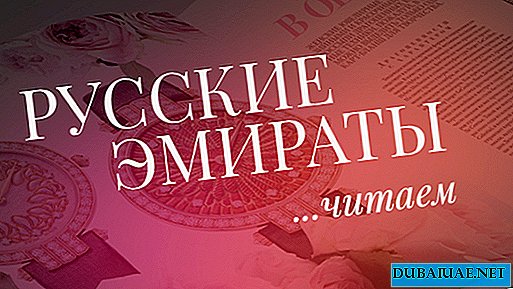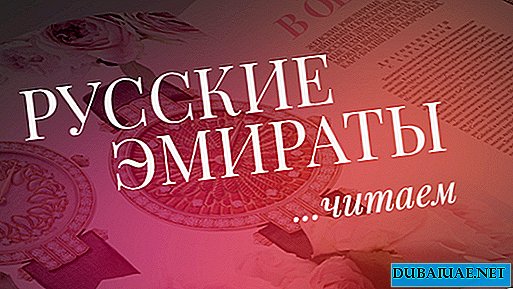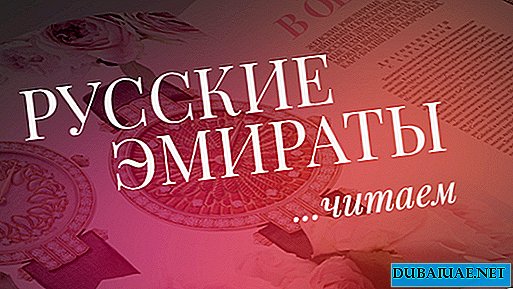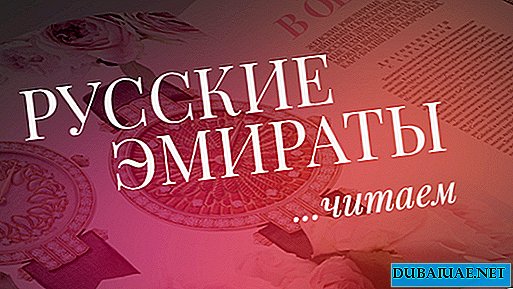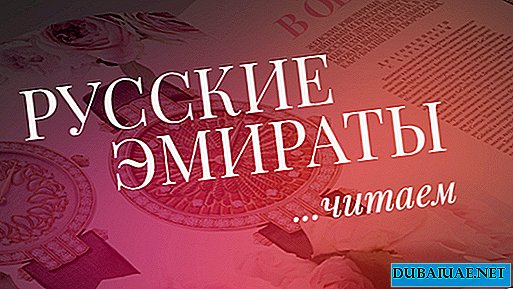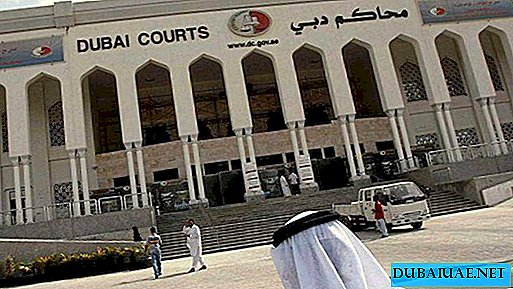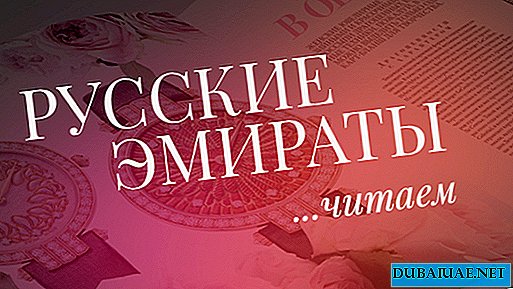 The name of the founder of the country and the father of the people continues to live. It is given to the little children they have hopes for. Where are babies called? Who chooses names, who gives them to people? Why do they often correspond to a person, live in harmony with her?
The name of the founder of the country and the father of the people continues to live. It is given to the little children they have hopes for. Where are babies called? Who chooses names, who gives them to people? Why do they often correspond to a person, live in harmony with her?
"Zayed" in Arabic means "multiplying," "adding," "exaggerating." The name is very rare. In most Arab countries, it never met until the late UAE President appeared on the political scene. Sheikh Zayed fully justified his name. His feat of life is unprecedented. He really multiplied and added many times.
The Soviet press, which was thoroughly accurate, in which everything and everything was casually checked at several levels, got used to a new political name for a long time and did not really trust the “Western tales” about fantastic changes on the former pearl, then pirate, and then oil Arab coast. Often, the head of state was called "Zeid" or "Ziad", bringing the real current politician closer to more famous historical characters. They simply did not write about successes. First of all, because they did not know about them, and when they found out, they did not believe. Emirates remained for the Soviet people "terra incognita" until the second half of the 80s of the last century.
 Sheikh Zayed announces the creation of the UAE.
Sheikh Zayed announces the creation of the UAE.December 2, 1971
They say that to fulfill his mission on earth, a person must give birth to a son, build a house and plant a tree. The great emirate raised 19 sons and created a new national community - the emirate people. He not only built the city of Abu Dhabi from scratch, in which now there is not a single house older than the state (except the Nakhayyan family fortress that became a museum), but also founded a new state entity. He planted forests and groves, in which only palm trees number about 50 million.
 The new leaders of the country are photographed in honor of the accession to the Federation of the Principality of Ras al-Khaimah.
The new leaders of the country are photographed in honor of the accession to the Federation of the Principality of Ras al-Khaimah.From left to right: Sheikh Rashid bin Ahmed Al-Mualla, then the Crown Prince, and now the ruler of Umm al-Quwain; Sheikh Sultan bin Muhammad Al-Kassimi, ruler of Sharjah; late Sheikh Rashid bin Saeed Al-Maktoum, UAE Vice President and Prime Minister, ruler of Dubai; Sheikh Zayed bin Sultan Al-Nahyan, President and Ruler of Abu Dhabi; Sheikh Sakr bin Mohammed Al-Kassimi, ruler of Ras Al Khaimah; Sheikh Mohammed bin Hamad Al-Sharqi, ruler of Fujairah; Sheikh Humeid bin Rashid Al-Nuaimi, then the Crown Prince, and now the ruler of Ajman.
Grateful descendants at the entrance to Abu Dhabi complete the construction of the most beautiful mosque in the country with amazing domes over its tomb. The temple is decorated with unique, custom-made, the best in the world masters original carpets and exquisite lamps. Named Zayed called the city in the country and abroad.
Sons continue his work. The country is being built at an even faster pace. Cities are getting prettier. Sands recede before the expanding green spaces.
A memorable meeting with Sheikh Zayed took place 16 years ago. Now the emirate state is 34 years old. Maturity. Then the country was just emerging from adolescence. She celebrated her 18th birthday.
In those days, the founder of the United Arab Emirates, Sheikh Zayed bin Sultan Al Nahyan, already exchanged the eighth dozen. He was full of energy. Straight back. Attentive black eyes. Learning look. Firm shaking of a wide, labor, tanned brush. Mine is not small, in general, the palm drowned in it. Sheikh Zayed held her and asked: "Are you Soviet or Arab?" - “Soviet,” was the answer. "And how did you know our language?" he continued interestedly. I answered in a grammatically correct literary form: "Out of respect for you." And he was amazed how this answer came up from in the difficult, formal atmosphere, under the attentive gaze of the then Minister of Information and Culture Ahmed Al Hamed. Apparently, many years of communication with the Arabs, who always find the right words to praise the encouraging, not to remain in debt for praise and retreat into the shadows, were not in vain. This is a great Arab dignity and great wisdom of the people, who say that "modesty is the best commodity." Sheikh Zayed liked the answer. “Mashaalla,” he said, expressing satisfaction and approval. The President wished me success in my journalistic work, emphasizing the importance of objectivity in my positions and assessments. He expressed kind words to Moscow and its friendly position on Arab issues.
 Sheikh Zayed, Sheikh Hamdan bin Rashid Al Maktoum and Sheikh Mohammed bin Rashid Al Maktoum visit the construction of an underwater oil storage facility in the Al Chicago Beach area near Dubai
Sheikh Zayed, Sheikh Hamdan bin Rashid Al Maktoum and Sheikh Mohammed bin Rashid Al Maktoum visit the construction of an underwater oil storage facility in the Al Chicago Beach area near DubaiDiplomatic relations between our countries were established back in 1971. The exchange of embassies lasted almost a decade and a half. I knew a diplomat who was supposed to go to Abu Dhabi to open an embassy. He did not wait for a visa. The international situation did not facilitate the entry of the young emirate state into the world arena, where two antagonistic camps fought fiercely. The one that headed the USSR, influential external forces did not want to be allowed into the region, where huge reserves of energy raw materials were discovered.
The UAE itself, which did not have not only trained competent personnel, but even a clear official state infrastructure, was also not yet ready for the challenges of that time, although acute international life burst into the state, lost between the desert and the sea.
Who now recalls that on the site of the current metropolitan area of the "Tourist Club", where the Le Meridian, Beach Hotel and the Abu Dhabi mall are now located, there was a swamp, and the building of the World Trade Center in Dubai was called the "white elephant in the desert"? One member of the British Parliament who visited Abu Dhabi less than 40 years ago wrote: “It's hard to believe. The airport consists of one asphalt path. There are no roads or cobbled streets on the island. People live in reed huts.” In 1965, six schools were just starting up in Abu Dhabi, with just over 500 students studying. Their fathers did not know either paper or slate boards and displayed beautiful Arabic letters on camel shovels.
"Wealth does not cost anything if they do not serve people, and the state, among all its affairs, should give preference to taking care of a person and raising a citizen."Sheikh Zayed
Such an inheritance went to Sheikh Zayed, who received power in the emirate of Abu Dhabi in 1966. Under his leadership, the emirate broke out of the tribal system, which did not exclude slavery, and entered an era of rapid economic growth. Already in 1970, the pace of development of Abu Dhabi was three times higher than that recorded in Kuwait, which then held leading economic positions in the region. A year later, a federal state was created that soon united seven emirates.
"A man is the most precious value," said the emirate president. "Wealth does not cost anything if they do not serve people, and the state should give preference to caring for a person and raising a citizen among all his affairs." The ministries of education and health have become the largest government departments. To encourage parents to let their children study, schoolchildren were paid scholarships in the first years of the formation of the state.
Sheikh Zayed paid particular attention to the land. Those who were inclined to work on it received free plots, fertilizers, seedlings, water, loans for construction and even for the maintenance of hired workers. For several years, the nomads who settled on the farms enjoyed privileges aimed at securing people on the ground, creating and educating a layer of farmers.
 Sheikh Zayed and Sheikh Khalid, the former ruler of Sharjah, read the first issue of Al Ittihad, one of the first newspapers in the UAE.
Sheikh Zayed and Sheikh Khalid, the former ruler of Sharjah, read the first issue of Al Ittihad, one of the first newspapers in the UAE.The capital has three dozen parks. The country exports flowers, potatoes and strawberries, other vegetables and fruits. Several nature reserves have been created. Forests are planted, planting material for which is selected in areas with a similar climate in Australia, Latin America, Southeast Asia. Forest plantations occupy hundreds of thousands of hectares. In the shallow waters of the Gulf, groves of mangrove trees familiar to salt water make noise, the first president also took part in the bookmark.
The head of state, who managed to celebrate just one national holiday, who had just raised his flag in New York as the 132nd member of the UN, said that his people were ready to continue to eat only dates, but would not tolerate the humiliation of defeat.Sheikh Zayed was a direct, frank, accurate in evaluations and consistent politician. To please the accusers of colonialism, he did not mask the country's special relations with Great Britain and recognized that it was closer and more understandable to other European countries for the local leadership. "She did not build hospitals and schools for us just because at that time we had nothing to build on," he said. But no one can reproach aiding the imperialism, forgetting the common Arab interests of the first emirate president.
 Sheikh Zayed and Elizabeth II, Queen of Great Britain (a history of good relations with which dates back to 1820)
Sheikh Zayed and Elizabeth II, Queen of Great Britain (a history of good relations with which dates back to 1820) History is selective in its memory, so I want to recall that Sheikh Zayed was a strong supporter of the use of oil weapons in the struggle for the honor and dignity of Arabs. The October Arab-Israeli war of 1973 found him in London. The head of state, who managed to celebrate just one national holiday, has just raised his flag in New York as the 132nd member of the UN, said that his people are ready to continue to eat only dates, but will not tolerate humiliation by defeat. “Either we drop the flags forever, or we will live with our heads held high and sing our hymns,” he said.
“Those who were in the front ranks in the fight for honor have already shed blood. And blood oil is no more expensive!Sheikh Zayed
Sheikh Zayed ordered that all European hospitals offered for sale be bought in European countries and sent with equipment and medicines to Syria and Egypt. With the aim of fair coverage of the course of hostilities, he mobilized 40 European journalists and at his own expense sent them to the theater of operations. He borrowed £ 100 million from British banks and transferred them to Cairo and Damascus. Having learned that Arab oil ministers, in protest against the anti-Arab policies of Western countries, decided to reduce the oil production by a 5 percent per month, Sheikh Zayed, rejecting Arab indecision, announced a complete cessation of oil supplies to the United States and other countries that supported Israel in that war.
 Sheikh Zayed along with Ahmed bin Khalifa Al-Suwaydi, UAE First Minister of Foreign Affairs, and King of Saudi Arabia Fahd.
Sheikh Zayed along with Ahmed bin Khalifa Al-Suwaydi, UAE First Minister of Foreign Affairs, and King of Saudi Arabia Fahd. The president was threatened. He drew attention to this, but said: "Those who were in the front ranks in the fight for honor have already shed blood. And the blood oil is no more expensive!"
In pan-Arab affairs, Sheikh Zayed was united with Moscow. He treated the Soviet Union well, welcomed perestroika, and wished success to democratic transformations in Russia and the CIS countries. The Russian representatives who met with him noted that the UAE president impressed them with his calm wisdom and warm attitude to his great northern neighbor. He repeatedly emphasized that the changes in Moscow that took place in the late 80s can only be appreciated after the passage of time.
Sheikh Zayed twice kindly answered my questions. In an interview, he said: "In relations between Moscow and her Arab friends, we have always seen sincerity and respect; the decision on a diplomatic exchange was not made by chance. We are convinced that it will be in our interests and will be useful." He expressed confidence that Moscow would treat the relations with the UAE with the same careful attention as the emirate’s side. "We, in turn, will keep friendship so that it stays clean and lasting."
The President of the UAE did not hide his pride in the achievements of his country. "I was striving for a lot, but I myself could not imagine that the country would come to such successes," he said. His favorite poet was the medieval bard Abu at-Tayeb al-Mutanabbi. It belongs to him the lines known to all:
"Not everything that a person strives for will come to him,After all, the winds blow at all,
what ships want "
Abu al-Tayeb al-Mutanabbi
Sheikh Zayed refuted the opinion of his poetic idol. He was not prevented by the winds ... nature and time.
Victor Lebedev,
Petersburg Orientalist-philologist,
Candidate of Historical Sciences
 Sheikh Zayed, along with Ahmed Hassan Al-Bakr, the future president of Iraq, bypasses the guard of honor at the airport of Baghdad, where he arrived on an official visit.
Sheikh Zayed, along with Ahmed Hassan Al-Bakr, the future president of Iraq, bypasses the guard of honor at the airport of Baghdad, where he arrived on an official visit.  Sheikh Zayed on a thoroughbred Arabian horse (during his reign, this breed ceased to threaten extinction from the Arabian Peninsula).
Sheikh Zayed on a thoroughbred Arabian horse (during his reign, this breed ceased to threaten extinction from the Arabian Peninsula).  Sheikh Zayed with one of his most talented falcons (this bird is a symbol of the UAE).
Sheikh Zayed with one of his most talented falcons (this bird is a symbol of the UAE).  Sheikh Zayed and Victor Lebedev
Sheikh Zayed and Victor Lebedev 

